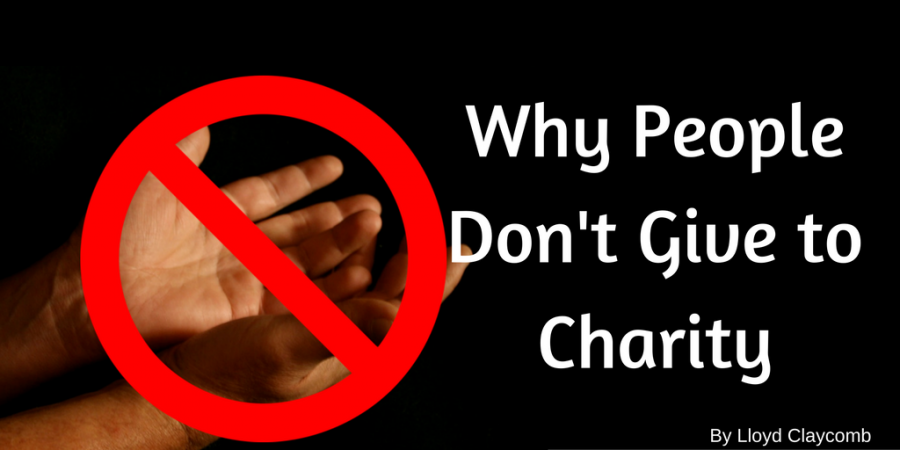Helping those less fortunate than yourself is a great way to make a difference while spending your money, and many people across the country are seeing the benefits themselves. Each year, the number of people donating and the amount they’re giving increases; in 2015, the total amount donated to charitable organizations was $373.25 billion, an increase of 4% (adjusted for inflation) from 2014. However, with all that people are giving and all the good that’s being done, for some reason or another, some people still don’t see the need to donate their money to benefit others. Here are some of the top reasons why people don’t give to charity, and why they should anyways.
We feel most strongly connected with those closest to us.
In terms of intimacy as well as geographical distance, we are more likely to give to causes or victims that are close to us than we are to help long-distance. Australian philosopher Peter Singer noted that, while Americans generously gave over $1.5 billion in disaster relief to the victims of the 2004 tsunami in Indonesia, their donation during Hurricane Katrina of $6.5 billion was more than four times as much; to put this into perspective, 1,600 people were killed during Hurricane Katrina while 220,000 were killed in the tsunami. Our overwhelming interest in helping only those closest to us has lead to only 5% of the country’s donations being sent to help on an international level. While you may not feel as though you need to give because your home is not directly being affected by a tragedy or plight, there are countless people out there who are and could greatly benefit from your help.
“I need my money for my family.”
Providing for your family and those dependent on you should always be your number one concern when it comes to money. However, even between bills, loans, and saving for the future, there are ways that you can still contribute without digging into your family’s future. First, look for little expenditures in life you could give to others instead; maybe give up your morning coffee one day a week and set that money aside for charity. Next, identify charitable organizations that have a track record of being reliable and effective, then target your donations to them for the maximum impact for your dollar.
We don’t think our contribution makes a difference.
In times of crisis, it’s not uncommon to see celebrities or other public figures donating tens of thousands of dollars towards the cause, which can make your $10 or $20 donation feel irrelevant. However, in some of the most impoverished nations, the smallest donations can make a huge impact. In fact, the organization Project Healthy Children (PHC) has developed a fortification operation that can feed a person for an entire year for less than a dollar. With the varying costs of living around the world, a small amount of money in the United States can go a long way in other countries in need.
We assume someone else will do it.
Often referred to as the “bystander effect,” we as humans have a tendency to believe that, even if we don’t lend a hand, there’s someone else who will pick up the slack. This belief allows us to quiet our consciences and feel as though we contributed by giving thought to helping without actually helping at all. Instead of letting the burden of responsibility fall to someone else, be proactive and affect change by helping out in whatever way you can.


Comments are closed.